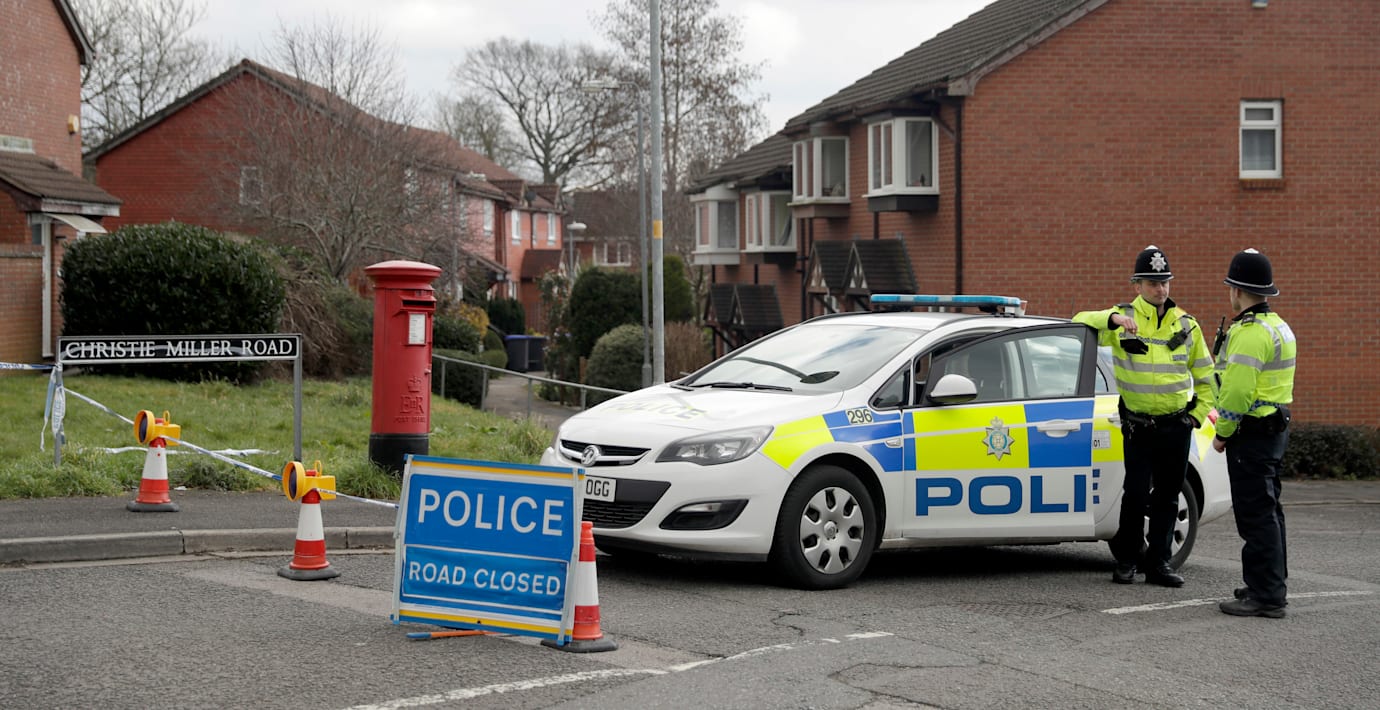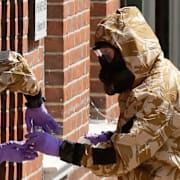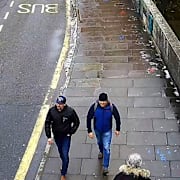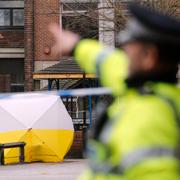
Skripal gavs fel medicin – kan ha motverkat novitjok
Den före detta ryske agenten Sergej Skripals liv kan ha räddats av att han av misstag gavs ett läkemedel mot nervgift efter att ha förgiftats i anslutning till sitt hem i Storbritannien i mars 2018. Det rapporterar The Telegraph.
Enligt en pågående utredning ska ambulanspersonal antagit att Skripal, som förgiftats med nervgiftet novitjok, drabbats av en överdos av narkotika. Ambulanspersonalen ville därför ge Skripal naloxon, som används vid överdoser. Man ska dock ha tagit fel flaska och i stället gett honom atropin, som används vid de mycket ovanliga fall då någon utsatts för nervgift.
Enligt Andrew O’Connor, juridiskt ombud i utredningen, kan felmedicineringen potentiellt ha räddat Skripals liv.
bakgrund
Förgiftningen av Sergej och Julia Skripal
Wikipedia (en)
The poisoning of Sergei and Yulia Skripal, also known as the Salisbury Poisonings, was a botched assassination attempt to poison Sergei Skripal, a former Russian military officer and double agent for the British intelligence agencies in the city of Salisbury, England on 4 March 2018. Sergei and his daughter, Yulia Skripal, were poisoned by means of a Novichok nerve agent. Both spent several weeks in hospital in a critical condition, before being discharged. A police officer, Nick Bailey, was also taken into intensive care after attending the incident, and was later discharged.
The British government accused Russia of attempted murder and announced a series of punitive measures against Russia, including the expulsion of diplomats. The UK's official assessment of the incident was supported by 28 other countries which responded similarly. Altogether, an unprecedented 153 Russian diplomats were expelled by the end of March 2018. Russia denied the accusations, expelled foreign diplomats in retaliation for the expulsion of its own diplomats, and accused Britain of the poisoning.
On 30 June 2018, a similar poisoning of two British nationals in Amesbury, seven miles (11 km) north of Salisbury, involved the same nerve agent. Charlie Rowley found a perfume bottle, later discovered to contain the agent, in a litter bin somewhere in Salisbury and gave it to Dawn Sturgess who sprayed it on her wrist. Sturgess fell ill within 15 minutes and died on 8 July, but Rowley, who had also come into contact with the poison, survived. British police believe this incident was not a targeted attack, but a result of the way the nerve agent was disposed of after the poisoning in Salisbury. A public inquiry was launched into the circumstances of Sturgess's death. On 5 September 2018, British authorities identified two Russian nationals, using the names Alexander Petrov and Ruslan Boshirov, as suspected of the Skripals' poisoning, and alleged that they were active officers in Russian military intelligence. Later, investigative website Bellingcat stated that it had positively identified Ruslan Boshirov as being the highly decorated GRU Colonel Anatoliy Chepiga, that Alexander Petrov was Alexander Mishkin, also of the GRU, and that a third GRU officer present in the UK at the time was identified as Denis Vyacheslavovich Sergeev, believed to hold the rank of major general in the GRU. The pattern of his communications while in the UK indicates that he liaised with superior officers in Moscow.
The attempted assassination and subsequent agent exposures was an embarrassment for Putin and for Russia's spying organisation. It was allegedly organised by the secret Unit 29155 of the Russian GRU, under the command of Major General Andrei V. Averyanov. On 27 November 2019, the Organisation for the Prohibition of Chemical Weapons (OPCW) added Novichok, the Soviet-era nerve agent used in the attack, to its list of banned substances.
Omni är politiskt obundna och oberoende. Vi strävar efter att ge fler perspektiv på nyheterna. Har du frågor eller synpunkter kring vår rapportering? Kontakta redaktionen


